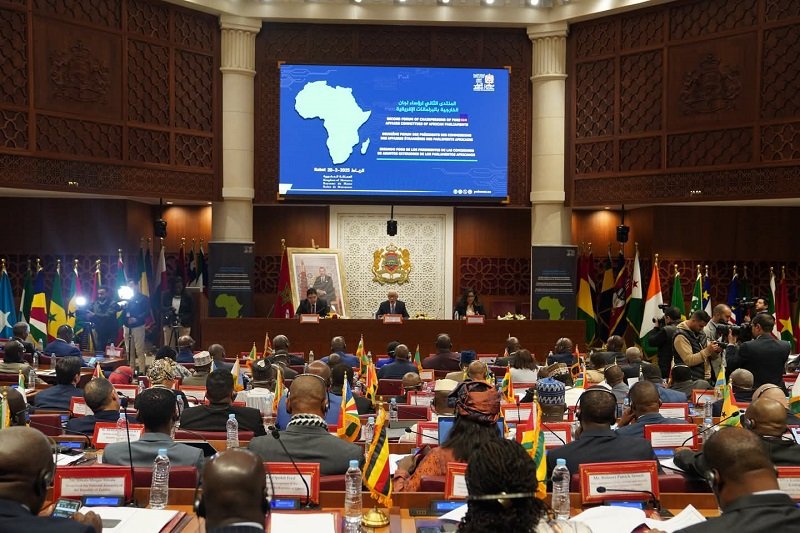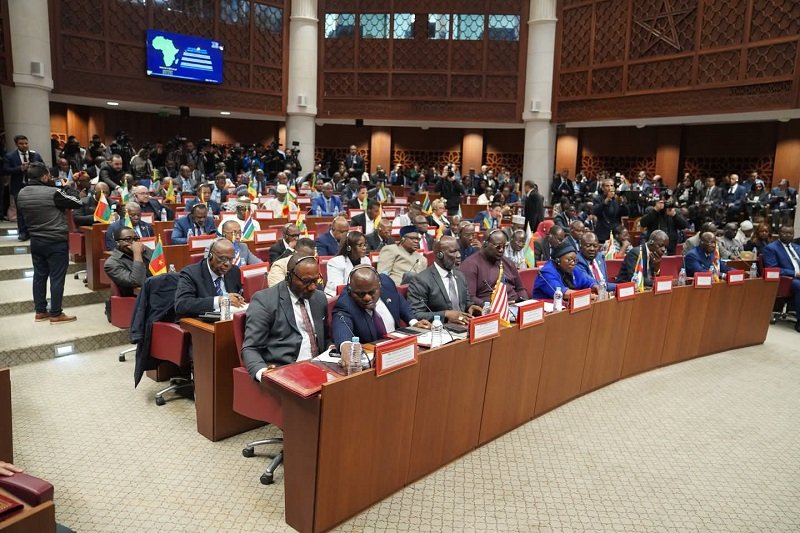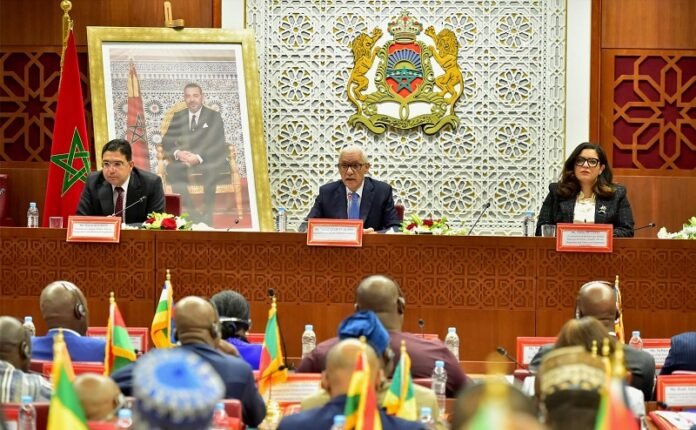In a powerful speech during the opening of the second Forum of African Parliamentary Foreign Affairs Committee Chairs, Moroccan Foreign Minister Nasser Bourita affirmed that Morocco’s commitment to the African continent is one of concrete action, not empty slogans.
Strategic Vision or Defense of a Position?
In the context of Morocco’s foreign policy towards Africa, the Minister of Foreign Affairs and African Cooperation, Nasser Bourita, emphasized that Morocco’s commitment to Africa is not just about empty slogans but is based on tangible projects and initiatives.

These statements come after the loss of Moroccan candidate Latifa Akharbach to Algeria’s Mélika Haddad in the race for the position of Vice-President of the African Union Commission, raising questions about the effectiveness of Moroccan diplomacy in the face of regional competition within continental institutions.
A Decline in Moroccan Influence in the African Union?
This loss is an indicator of the challenges Rabat faces in strengthening its presence within the African Union. Despite Morocco’s efforts since its return to the continental organization in 2017, some countries continue to hinder Morocco’s influence within the Union’s institutions, particularly due to rivalry with Algeria, which is aggressively pushing its regional agenda.
But does this loss reflect a decline in Moroccan influence, or is it merely a temporary setback? And could it have been avoided through stronger diplomatic alliances?
Morocco’s Commitment to Africa: A Development Vision or a Geopolitical Necessity?
Bourita affirmed that Morocco’s policy towards Africa is based on a comprehensive vision centered on the triad of security, peace, and development, as evidenced by major projects such as the Morocco-Nigeria gas pipeline and increasing investments in infrastructure and transformative industries across the continent.

But a fundamental question arises: Are these economic initiatives enough to address the political challenges within the African Union, especially in a context where some countries continue to support separatist groups that threaten the region’s stability?
Political Realism or Slogans?
Through Bourita’s statements, it appears that Morocco is adopting a discourse based on political realism rather than the traditional slogans that dominate diplomatic rhetoric in Africa. The Kingdom is betting on economic presence and strategic investments rather than ideological conflicts.
But to what extent can this approach succeed in the complex African landscape?
The Future of Morocco’s Role in Africa
It seems that Morocco’s bet on Africa continues despite diplomatic obstacles, but it is now necessary to strengthen political presence within African Union institutions with the same intensity as economic presence.
Will Rabat reassess its strategy within the continental organization, or will it continue with its current approach? And will it be able to overcome the obstacles posed by some competing regional powers?
Conclusion: Challenges and Opportunities
Between official statements and diplomatic challenges, Morocco’s commitment to Africa remains a strategic choice, not a circumstantial orientation. However, success in this path requires the development of more effective tools to strengthen political influence within the African Union, ensuring that Moroccan diplomacy remains active and capable of protecting the Kingdom’s interests on the continent.


